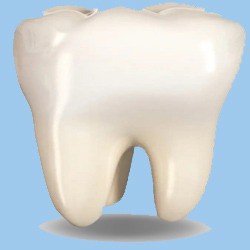- study systems
- Lower and upper limits
- Study plan requirements
- Related legal materials
- Duration of study and academic load
The provisions of this section apply to students enrolled in Al-Shahba Private University.
- The University Council approves study plans for colleges and departments that lead to obtaining a license in the majors offered by the university colleges, based on the recommendation of the college councils and the proposals of the specialized department councils.
- Each study plan specifies the number of hours prescribed for requirements within the minimum and upper limits as follows
| the college | minimum | the highest rate |
|---|---|---|
| 6-year colleges |
210 hour |
260 hour |
| Medical colleges with a 5-year study period |
180 hour |
195 hour |
| Colleges with study for a period of 5 years |
160 hour |
170 hour |
| Colleges with study for a period of 4 years |
128 hour |
135 hour |
1. University Requirements: These include compulsory and elective requirements whose number of credit hours is specified in the study plans, provided that they do not exceed 15% of the number of credit hours for each major.
2. College Requirements: Basic, general and supportive sciences for the college, specialization, and joint courses between the various departments in the case of colleges with multiple programs and include compulsory and elective requirements, provided that they are not less than 15% and not more than 30% of the number of credit hours for the major.
3. Department requirements (exact or general specialization): These include compulsory and elective requirements for each college and specialization, and the number of its credit hours is determined in the study plans for each major in accordance with paragraphs (1, 2).
4. Free Requirements: chosen by the student outside his major, provided that their number does not exceed /6/ credit hours.
Article (1):
1. The compulsory and elective specialization courses are from the specialization department, and may be shared with other departments, provided that they follow the department closest to the specialization.
2. Compulsory courses are offered at least once in one of the semesters of the academic year.
3. The College Council may approve giving students elective courses (university or college elective requirements) from courses taught in other colleges or departments.
4. It is not required that all the elective courses of the university be opened in each semester, and it remains for the university and the college to decide according to the possibility and requirements.
5. Each department prepares a guiding plan distributed over (8, 10, 12) eight, ten, and twelve compulsory semesters, and in proportion to the number of hours of the study plan for it, proposing the courses that the student registers in each semester.
Article (2):
1. The credit hours for each course in the study plan are determined on the basis that the weekly theoretical hour is one credit hour. As for the hours of laboratory work, practical application, or clinics, they are evaluated for each course separately. In all cases, the credit hour is not less than two applied hours, and it is calculated Courses of seminars and research (seminars - research seminars - graduation projects) one credit hour for every sixteen regular meetings, each of which is not less than one hour.
2. A description of the content of each course should be made in proportion to the number of credit hours allocated to it.
3. Each course is given a code (code) of its own that distinguishes it from the rest of the courses. This code includes an indication of the college, department, level, knowledge field and requirement.
4. Prerequisites or co-requisites (if any) are specified for each course.
5. A student may not study a course before studying his previous requirement, if any. In the event that this happens, the student's registration and grades in that course will be cancelled.
6. Subject to the provisions of the previous clause (5) of this article, the student may study a course and its previous requirement in the same semester (simultaneously) in the following two cases: a- If he has studied the previous requirement and failed in it. b- If his graduation depended on that, and it is permissible with the written approval of the concerned dean.
7. If a student is allowed to study a course concurrently with the previous requirement for this course, then he is denied to continue studying the previous requirement, he will continue to study that course, without exempting him from studying the previous requirement, and the course mark will not be announced until the student successfully completes his previous requirement.
Article 3:
A student's registration in any semester is canceled if he does not pay the prescribed tuition fees on the dates specified in that semester.
The registration officer at the Examinations Department checks the registration forms within a week of the end of the registration period and cancels any course for any student whose study load in a semester exceeds the maximum allowable limit, according to the regulations in force at the university, taking into account the opinion of the academic advisor regarding the course or courses whose registration is to be cancelled.
Article 4:
The student is classified to obtain a bachelor’s degree in the colleges of the university at the level of the second, third, fourth, fifth, or sixth year, if he successfully completes the study of the prescribed hours according to the following table:
| the college |
Succeed to the year 2 |
Succeed to the year 3 |
Succeed to the year 4 |
Succeed to the year 5 |
Succeed to the year 6 |
|---|---|---|---|---|---|
| 6-year colleges |
27 |
62 |
97 |
132 |
167 |
| Medical colleges with a 5-year study period |
28 |
64 |
100 |
136 |
|
| Colleges with study for a period of 5 years |
24 |
56 |
88 |
120 |
|
| Colleges with study for a period of 4 years |
24 |
56 |
88 |
1. The academic year consists of two compulsory semesters and an optional summer semester:
First Semester (Autumn Semester): Compulsory and regular, with a duration of 16 to 19 weeks, some of which are devoted to exams.
Second Semester (Spring Semester): Compulsory and regular, with a duration of 16 to 19 weeks, some of which are devoted to exams.
Third Semester (Summer): An elective intensive course of 8 weeks, including a week of exams.
2. The university calendar approved annually by the relevant university council determines the following dates and times:
A- Registration start and end dates.
B- The deadlines for dropping and adding courses, and withdrawing from them.
C- The study start and end date in each semester.
D- Examination dates and holidays between semesters.
G- Results announcement dates.
3. New students are admitted at the beginning of each of the first and second semesters (only the two compulsory semesters) according to the rules of admission and the capacity of each college.
1. The period of study to obtain a license with an academic load for the student is as follows:
| the college | study duration |
|---|---|
| 6-year colleges | Twelve semesters, or six years |
| Medical colleges with a 5-year study period | Ten semesters, or five years |
| Colleges with study for a period of 5 years | Ten semesters, or five years |
| Colleges with study for a period of 4 years | Eight semesters, or four years |
2. The period spent by the student registered to obtain a bachelor's degree may not exceed nine years in colleges with a 6-year study period, seven and a half years for 5-year colleges, and 6 years in a 4-year college. (The period spent by the student registered to obtain a bachelor’s degree may not exceed twice the period of study specified in this article.)
3. A student may not obtain a bachelor’s degree in a period of less than five and a half years of study for colleges with a duration of study of 6 years, four and a half years for medical specializations with a duration of study of 5 years, four years for engineering majors, and three and a half years for colleges with a duration of study 4 years.
4. The credit hours that a student can register at the minimum and maximum levels during the different semesters are determined according to the following:
| the class | minimum | the upper limit | The upper limit for colleges whose total number of credit hours exceeds 200 |
|---|---|---|---|
| first (autumn) |
12 |
18+3 |
25 |
| second (spring) |
12 |
18+3 |
25 |
| third (summer) |
2 |
9+3 |
9+3 |
5. The student’s study load may reach a maximum of /21/ credit hours in the compulsory semesters and /12/ credit hours in the summer semester, and this is done with the approval of the dean of the concerned college in the two cases:
A- If the student’s GPA in the previous semester was not less than (80%) or (3) points.
b- The student expected to graduate.
6. The student's academic load may not be less than the minimum specified in Paragraph (2) of this article, and there is no minimum in the case of graduation.
- study systems
- Lower and upper limits
- Study plan requirements
- Related legal materials
- Duration of study and academic load
The provisions of this section apply to students enrolled in Al-Shahba Private University.
- The University Council approves study plans for colleges and departments that lead to obtaining a license in the majors offered by the university colleges, based on the recommendation of the college councils and the proposals of the specialized department councils.
- Each study plan specifies the number of hours prescribed for requirements within the minimum and upper limits as follows
| the college | minimum | the highest rate |
|---|---|---|
| 6-year colleges |
210 hour |
260 hour |
| Medical colleges with a 5-year study period |
180 hour |
195 hour |
| Colleges with study for a period of 5 years |
160 hour |
170 hour |
| Colleges with study for a period of 4 years |
128 hour |
135 hour |
1. University Requirements: These include compulsory and elective requirements whose number of credit hours is specified in the study plans, provided that they do not exceed 15% of the number of credit hours for each major.
2. College Requirements: Basic, general and supportive sciences for the college, specialization, and joint courses between the various departments in the case of colleges with multiple programs and include compulsory and elective requirements, provided that they are not less than 15% and not more than 30% of the number of credit hours for the major.
3. Department requirements (exact or general specialization): These include compulsory and elective requirements for each college and specialization, and the number of its credit hours is determined in the study plans for each major in accordance with paragraphs (1, 2).
4. Free Requirements: chosen by the student outside his major, provided that their number does not exceed /6/ credit hours.
Article (1):
1. The compulsory and elective specialization courses are from the specialization department, and may be shared with other departments, provided that they follow the department closest to the specialization.
2. Compulsory courses are offered at least once in one of the semesters of the academic year.
3. The College Council may approve giving students elective courses (university or college elective requirements) from courses taught in other colleges or departments.
4. It is not required that all the elective courses of the university be opened in each semester, and it remains for the university and the college to decide according to the possibility and requirements.
5. Each department prepares a guiding plan distributed over (8, 10, 12) eight, ten, and twelve compulsory semesters, and in proportion to the number of hours of the study plan for it, proposing the courses that the student registers in each semester.
Article (2):
1. The credit hours for each course in the study plan are determined on the basis that the weekly theoretical hour is one credit hour. As for the hours of laboratory work, practical application, or clinics, they are evaluated for each course separately. In all cases, the credit hour is not less than two applied hours, and it is calculated Courses of seminars and research (seminars - research seminars - graduation projects) one credit hour for every sixteen regular meetings, each of which is not less than one hour.
2. A description of the content of each course should be made in proportion to the number of credit hours allocated to it.
3. Each course is given a code (code) of its own that distinguishes it from the rest of the courses. This code includes an indication of the college, department, level, knowledge field and requirement.
4. Prerequisites or co-requisites (if any) are specified for each course.
5. A student may not study a course before studying his previous requirement, if any. In the event that this happens, the student's registration and grades in that course will be cancelled.
6. Subject to the provisions of the previous clause (5) of this article, the student may study a course and its previous requirement in the same semester (simultaneously) in the following two cases: a- If he has studied the previous requirement and failed in it. b- If his graduation depended on that, and it is permissible with the written approval of the concerned dean.
7. If a student is allowed to study a course concurrently with the previous requirement for this course, then he is denied to continue studying the previous requirement, he will continue to study that course, without exempting him from studying the previous requirement, and the course mark will not be announced until the student successfully completes his previous requirement.
Article 3:
A student's registration in any semester is canceled if he does not pay the prescribed tuition fees on the dates specified in that semester.
The registration officer at the Examinations Department checks the registration forms within a week of the end of the registration period and cancels any course for any student whose study load in a semester exceeds the maximum allowable limit, according to the regulations in force at the university, taking into account the opinion of the academic advisor regarding the course or courses whose registration is to be cancelled.
Article 4:
The student is classified to obtain a bachelor’s degree in the colleges of the university at the level of the second, third, fourth, fifth, or sixth year, if he successfully completes the study of the prescribed hours according to the following table:
| the college |
Succeed to the year 2 |
Succeed to the year 3 |
Succeed to the year 4 |
Succeed to the year 5 |
Succeed to the year 6 |
|---|---|---|---|---|---|
| 6-year colleges |
27 |
62 |
97 |
132 |
167 |
| Medical colleges with a 5-year study period |
28 |
64 |
100 |
136 |
|
| Colleges with study for a period of 5 years |
24 |
56 |
88 |
120 |
|
| Colleges with study for a period of 4 years |
24 |
56 |
88 |
1. The academic year consists of two compulsory semesters and an optional summer semester:
First Semester (Autumn Semester): Compulsory and regular, with a duration of 16 to 19 weeks, some of which are devoted to exams.
Second Semester (Spring Semester): Compulsory and regular, with a duration of 16 to 19 weeks, some of which are devoted to exams.
Third Semester (Summer): An elective intensive course of 8 weeks, including a week of exams.
2. The university calendar approved annually by the relevant university council determines the following dates and times:
A- Registration start and end dates.
B- The deadlines for dropping and adding courses, and withdrawing from them.
C- The study start and end date in each semester.
D- Examination dates and holidays between semesters.
G- Results announcement dates.
3. New students are admitted at the beginning of each of the first and second semesters (only the two compulsory semesters) according to the rules of admission and the capacity of each college.
1. The period of study to obtain a license with an academic load for the student is as follows:
| the college | study duration |
|---|---|
| 6-year colleges | Twelve semesters, or six years |
| Medical colleges with a 5-year study period | Ten semesters, or five years |
| Colleges with study for a period of 5 years | Ten semesters, or five years |
| Colleges with study for a period of 4 years | Eight semesters, or four years |
2. The period spent by the student registered to obtain a bachelor's degree may not exceed nine years in colleges with a 6-year study period, seven and a half years for 5-year colleges, and 6 years in a 4-year college. (The period spent by the student registered to obtain a bachelor’s degree may not exceed twice the period of study specified in this article.)
3. A student may not obtain a bachelor’s degree in a period of less than five and a half years of study for colleges with a duration of study of 6 years, four and a half years for medical specializations with a duration of study of 5 years, four years for engineering majors, and three and a half years for colleges with a duration of study 4 years.
4. The credit hours that a student can register at the minimum and maximum levels during the different semesters are determined according to the following:
| the class | minimum | the upper limit | The upper limit for colleges whose total number of credit hours exceeds 200 |
|---|---|---|---|
| first (autumn) |
12 |
18+3 |
25 |
| second (spring) |
12 |
18+3 |
25 |
| third (summer) |
2 |
9+3 |
9+3 |
5. The student’s study load may reach a maximum of /21/ credit hours in the compulsory semesters and /12/ credit hours in the summer semester, and this is done with the approval of the dean of the concerned college in the two cases:
A- If the student’s GPA in the previous semester was not less than (80%) or (3) points.
b- The student expected to graduate.
6. The student's academic load may not be less than the minimum specified in Paragraph (2) of this article, and there is no minimum in the case of graduation.





